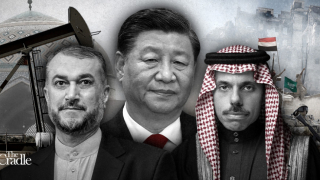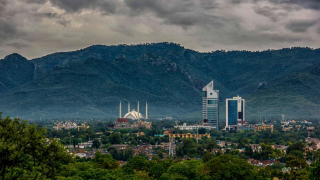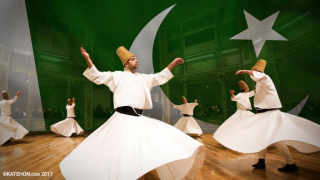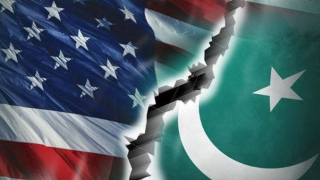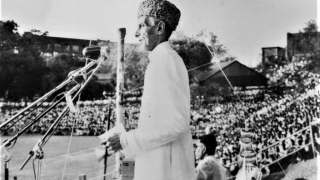A new Framework for Pakistan’s Foreign Policy
08.09.2020
Recently, Pak-Saudi diplomatic relations deteriorated and come across rock bottom. The current diplomatic crisis unfolded when Pakistan's Foreign minister Shah Mehmood Qureshi publicly criticized Organization of Islamic Countries (OIC) on its dormant role to address Kashmir dispute. Saudi Arabia who presumably see itself as a leader of Muslim countries continuously ignored Pakistan's frustration with OIC failure to take any substantive steps to support Pakistan on Kashmir dispute. The reasons behind Saudi Arab's stance on Kashmir are its commercial interests with India and new strategic grouping in Middle East with the growth of Belt and Road Initiative (BRI). In the wake of these new arrangements and shifts in policies of important gulf countries, there are signs of paradigm shift and new framework for foreign policy in Pakistan. “A new foreign policy framework is taking shape that reasserts Pakistan's deep ties with Beijing while scaling up ties with Russia and with Muslim-majority states outside of the Arab Gulf” said Michael Kugelman, a South Asia expert at the Washington-based Woodrow Wilson Center.
Paradigm Shift in Pakistan’s FP
From a long time Pakistan wanted to diversify its foreign policy but remained entangled in complex regional and transnational issues and failed to act on its wish. Multiple dynamics of regional and international politics lead Pakistan to revisit its foreign policy. New geopolitical fault lines and emerging strategic groupings in South Asia and Middle East acted as catalysts for Pakistan to revisit the framework of its foreign policy. Pakistan’s new framework for foreign policy is based on:
- Prospects of peace, prosperity and development through regional and interregional connectivity
- Focus on strong and balanced diplomatic and strategic relations with all world powers
- Countering Indian influence in Middle East, South Asia and Central Asia
- Harnessing emerging geo-political realties to gain support on Kashmir dispute from ally countries.
China Pakistan Economic corridor (CPEC) brought broader shift in Pakistan foreign policy. Vision of regional and interregional connectivity have become a guiding principle for Pakistan to remain relevant to the strategic calculus of regional and world powers. It have added much needed dimensions in Pakistan Foreign policy, unlike its old habit of narrow approach, now Pakistan is looking towards to attract countries in Middle East, Central Asia and beyond to become strategic partners in CPEC. Even though with its strategic partnership with China, Pakistan have played its cards cautiously to improve its relations with United States and have become more relevant, as a partner not henchmen, to America’s South Asia strategy with its role as a facilitator in Afghan Peace Process. Pakistan is also pursuing to improve its relationship with Russia and consider strong bilateral relations between two countries as an important agenda of its foreign policy.
Especially after 5th August, 2019, Pakistan is being criticised for its lack of clarity on its policy and ability to find support of other states on Kashmir dispute. Both, Kashmir and countering India have remained a challenge for Pakistan’s foreign policy but after 5th August, 2019, Pakistan found itself handicapped due of its economic plight, new geopolitical realties, FATF hanging sword and indifference of major powers towards Kashmir dispute. No substantive progress was made on the dispute except few speeches. To make more progress on Kashmir and to counter increasing Indian influence in Middle East Pakistan is adopting new diplomatic strategy. “Pakistan, for its part, may gravitate increasingly towards the Turkey-Qatar-Iran-Malaysia camp. It has close and long-standing ties to Turkey, receives energy from Qatar, and could make more progress on Kashmir by forming a united front with those powers.” Said Rupert Stone, freelance journalist based in Istanbul. Addition of Iran in growing Belt and Road Initiative (BRI) and possible inclusion of other key states in this project might transform present geopolitical realties of the region, which Pakistan might use to its leverage against India to resolve longstanding issue.
Way forward for Pakistan
Indeed, Pakistan made diametric shifts in its foreign policies to address new challenges but these challenges provides an opportunity to Islamabad to gear up strategy and policies that can produce results and can ensure Pakistan’s core interests in regional and world politics. Institutional capacity building is key for the implementation of new policies that Islamabad deem vital for its strategic calculus. Pakistan have took a right step in this regard by forming CPEC authority but more synchronised efforts are needed by all institutions in Pakistan. Now Kashmir dispute is even more arduous task for Pakistan to address with limited options in hand. Because of Indian influence in world politics, Pakistan failed to get support of International community on Kashmir dispute and have made it more toilsome. BRI will likely change geopolitical realties of the region and world, it provides an opportunity to Pakistan to explore new options regarding Kashmir and India. However, finding a diplomatic solution to Kashmir dispute seems implausible after India’s unilateral action of 5th August, 2019.



